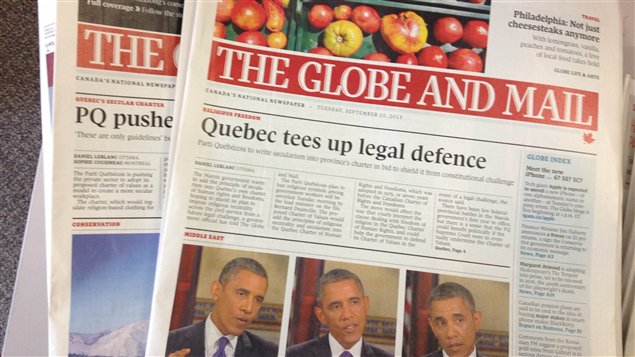Appearing before the Ontario Press Council this week, the Globe and Mail defended its use of anonymous sources in reporting Toronto city councillor Doug Ford’s alleged past links with the drug trade. Ford is brother to Mayor Rob Ford and, while he is not officially acting deputy mayor, he wields enormous power in the city administration.
Several complaints were made to the council which is an industry watchdog made up of a majority of members of the public and a minority of news organizations including the Globe. The news outlets fund the council.

Drug dealers, users were sources
“The Ford family’s history with drug dealing” was the title of the story at issue and it was published on May 25. The article cited interviews with 10 people, including dealers and users of hash who alleged Councillor Ford sold the drug as a young man.
The complainants argued the paper had a responsibility to name the sources and that at least one should have revealed him or herself. The Globe disagreed saying the story could not have been told without the anonymous sources who provided accounts of what went on.
Sources may risk retribution
“We say in our code of conduct, in an ideal world there would be no anonymous sources,” said Sylvia Stead, public editor of the Globe and Mail. “But sometimes an important story can’t be told without protecting a source who risks retribution in some way if they are identified.”
But the bar must be set higher when using anonymous sources, said Stead. “You really have to understand who these people are. You have to source and double-source and triple-source and in this case 10 people.” Reporters cross checked the stories, met with lawyers and senior editors often in a careful process that took 18 months.
Previous high court ruling favoured Globe
The Supreme Court of Canada has previously ruled the use of anonymous sources is permissible when the greater public interest is served. In one case before the highest court, the Globe had argued that its reporter Daniel Leblanc should not be forced to reveal his source in his report about a sponsorship scandal. The court ruled in the newspaper’s favour.
The Globe now argues the Ford story was in the public interest because of the immense power wielded by Doug Ford at city hall and because both he and his brother, the mayor had campaigned on anti-drug platforms.

Council has no legal clout
The Ontario Press Council is expected to rule on the complaint in a few weeks. If the judgement goes against the Globe, it will be expected to publish the reasons. If the council rules in its favour, the newspaper will note that too.
The council is not a legal entity. “It’s their function to really look at complaints from the public, to deal with it in an open and transparent fashion,” said Stead. “It’s really a way of just making things public, of adding an extra level of transparency to what is done.”







For reasons beyond our control, and for an undetermined period of time, our comment section is now closed. However, our social networks remain open to your contributions.